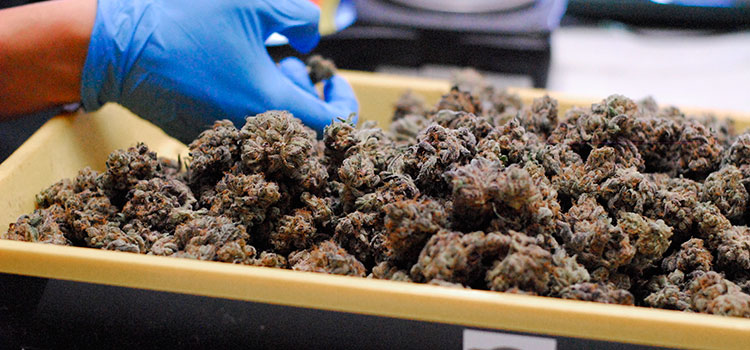After a long battle, Florida finally passed a real medical cannabis bill in November, 2016. The historic amendment requires the Florida Legislature and the Department of Health to craft regulations for the administration of medical cannabis in the state. According to the state constitution, Amendment 2 went into effect on January 3, 2017. Unfortunately, there are already signs that the rollout may not be as smooth as voters want, despite it passing with an overwhelming 71% of the vote.
Here are five things that voters and activists should pay attention to as medical cannabis moves forward in Florida.
Moratoriums and license quotas
Moratoriums and license quotas can negatively affect medical cannabis patients, reduce government tax collections, encourage the illicit market and stifle economic growth. Several cities have already placed bans on medical cannabis in Florida, and opponents of the amendment have vowed to push for more bans around the state. The current CBD-rich medical cannabis system already has license quotas, meaning it’s likely the new system may suffer the same fate.
Keith Boyce, a Washington state cannabis activist and member of The Cannabis Alliance said, “The bans and moratoriums are put into place to ‘protect’ the local citizens. Though the intentions may be good, the result is quite the opposite. The illicit/black markets thrive in the banned areas, and patients are denied the very medication that may save their life.”
“We’ve been able to overturn some bans in Washington State by patients telling personal stories to the regulators. Real people showing up to talk about how medical cannabis helps them can really shine a positive light on this misunderstood issue,” Boyce said.
Possession limits
The amount of usable cannabis and the amount patients can buy at one time vary widely from state to state. Americans for Safe Access contends it is best to let patients decide how much cannabis they are allowed saying “The type and severity of symptoms, the strain of cannabis, and the route of administration all greatly impact the amount that a specific patient may need at any given time.” Although it is unlikely Florida’s law will be this open, patients and activist can insist buying and possession limits are feasible for the most ill patients in the state.
ID cards and registry privacy
A patient registry is a database which catalogs medical cannabis patients and information related to their qualifying conditions. Often a medical cannabis ID is issued. Patients must register in Florida’s compassionate use database now to receive low THC cannabis from an authorized provider. Therefore, it is likely that Florida’s full plant cannabis system will utilize a patient registry and accompanying ID cards to track medical cannabis. Many states have strict penalties for improper access of medical cannabis records, but FL activists must be vigilant in this age of hacking so that their medical information doesn’t fall into the wrong hands. Additionally, who is legally allowed to access the database has been a concern raised by activists in other medical cannabis states.
Pesticides
Pesticides can be a problem in any medical cannabis system. The most obvious reason is that medical cannabis patients are often already sick and adding contaminants like pesticides can be extremely harmful. Unlike many food products, pesticides cannot be easily washed off of cannabis flowers and leaves. Concentrating contaminated cannabis can add to the danger of pesticide-tainted plant matter. The pesticide residue can turn into even more harmful chemicals when ignited.
To compound the problem, there are no federal guidelines to regulate pesticides used on cannabis due to its ongoing prohibition under federal law. Recently, several recreational cannabis states have been surprised by seemingly large amounts of cannabis being contaminated with pesticides. Regulators were sent scrambling to fix the problem, but many patients have likely already been exposed. Patients and activist must insist that FL’s medical cannabis system is pesticide-free and that, in the event of contamination, there is a workable recall protocol in place.
Qualifying conditions
Amendment 2 allows the dispensing of cannabis to patients with a “debilitating condition.” This term is defined in the amendment as “Debilitating Medical Condition,” meaning cancer, epilepsy, glaucoma, HIV, AIDS, ALS, PTSD, Crohn’s disease, Parkinson’s disease, multiple sclerosis, or “other debilitating medical conditions of the same kind or class as or comparable to those enumerated, and for which a physician believes that the medical use of marijuana would likely outweigh the potential health risks for a patient.” This is a broad and suitable list of qualifying conditions, but No on 2 has already signaled they are opposed to such a wide definition of “debilitating condition”. In a statement issued after A2, No on 2 asked legislators to look closely at the debilitating condition list. It is important the FL Legislature and Department of Health allow this broad definition to go forward in order to treat the sickest patients in Florida.
This is a broad and suitable list of qualifying conditions, but the No On 2 campaign has already signaled they are opposed to such a wide definition of “debilitating condition.” In a statement issued after Amendment 2 was passed, No On 2 asked legislators to look closely at the debilitating condition list.
However, it is important to call on Florida’s legislature and Department of Health to allow this broad definition moving forward in order to treat the state’s most sickly patients.

